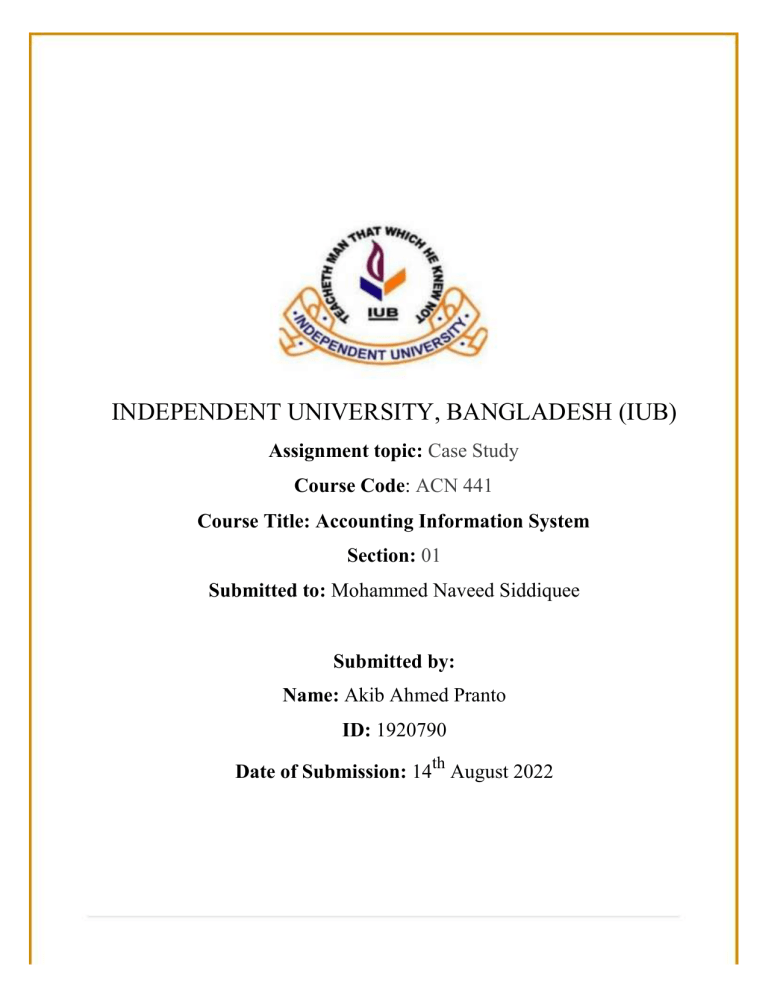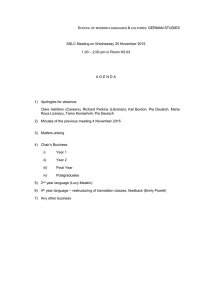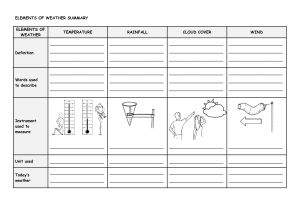
INDEPENDENT UNIVERSITY, BANGLADESH (IUB) Assignment topic: Case Study Course Code: ACN 441 Course Title: Accounting Information System Section: 01 Submitted to: Mohammed Naveed Siddiquee Submitted by: Name: Akib Ahmed Pranto ID: 1920790 Date of Submission: 14th August 2022 Table Of Contents Executive Summary According to this case study, the lone proprietor of a small pharmaceutical company has been under stress as a result of the pressure of managing all the accounting responsibilities by herself from the inception of her business. She doesn't have a business experience, yet she handles the accountingrelated tasks she is given fairly effectively. She just realized that the heart of her company requires more of her time. She thought of establishing a cloud-based accounting information system for her business as a consequence, hoping to lessen her workload. Cloud computing is the term used to describe the on-demand availability of computer system resources, primarily data storage and processing power, without direct active supervision by the user. The word is frequently used to refer to data centers that are reachable by several users online. By concentrating on the company's core activities rather than accounting administration, she may be able to save a significant amount of time. This study aims to gain a better understanding of the value, advantages, and potential downsides of cloud computing for accounting information systems. I made an effort to address a few questions in this case that would help the reader understand more about cloud computing, its importance in business, benefits, security issues, and risk mitigation techniques. Whether or not choosing a cloud computing solution is heavily influenced by price. These case study solutions might help the reader expand their business and use cloud computing for accounting successfully. Question No 1: Which could-based system accounting information system should Pia select and why? Answer: Given her current situation, Pia should select the third strategy. As part of its fundamental infrastructure, it will offer a network, operating systems, virtual servers, and data storage devices. It will improve the scalability, reliability, and adaptability of Pia's pharmacy. Although Kluuvin Apteekki is a small pharmacy, Pia, the owner, is having difficulty with the administrative tasks linked to the money. As a result, she was unable to concentrate on the pharmacy's primary business. If she chooses the third system, she could have more time to focus on her business. It features an interface that is far more effective than the other two systems. It provides all the infrastructure required to support online programs, including as storage, web and application servers, and networking resources. Pia can quickly deploy web apps on IaaS and easily scale infrastructure up and down when app demand is unpredictable, enabling her to easily change the app as she pleases. Even though the third system costs more per month than the other two methods, there are no transaction expenses. Pay per use is also an option. She was also experiencing problems processing payroll due to the fact that nine out of sixteen employees work part-time, there is a high rate of employee turnover, and the payroll system is vulnerable to change over time. The third system can also be used to address the problem. Pia will be able to work with her accountants from any location via an internet connection. She may also immediately check on the condition of her business. She may freely choose which tasks she wants to outsource while yet maintaining control over the process. There are several deployment models. hybrid, public, and private. The third system provides access to all three versions. Since cloud management corporations control public cloud, it is not secure, while private cloud is secure, pricey, and time-consuming to maintain. Under IAAS, hybrid cloud models are accepted. A hybrid cloud's goal is to provide users command over crucial phases of the workflow while putting mundane and computationally taxing tasks in the hands of public cloud services. So Pia will be able to simply separate her intensive work so that she has control over certain sections of the job. Question No 2: Should Pia be worried about possible lock-in with either accountant or system provider? Answer: Pia should not be concerned about contracts with accountants or system providers. She was concerned about the security and privacy of her data because it was all stored on the cloud. In this case, she can choose for a private cloud to ensure that all data and cloud implementations, such as SaaS, PaaS, and IaaS, remain within corporate IT. As a consequence, she would not be required to change system providers. Furthermore, Pia should evaluate their company's health, financial health, risk management, and the supplier's capacity to confirm compliance with all of your requirements through a third-party audit when picking a system provider. It is required to give a performance report. It must have technical capabilities. For all levels and types of cloud services, a comprehensive security architecture should be in place. Pia will not have to change system providers if she picks her system provider based on the availability of these goods. The third system is linked to an accounting service as well. Pia will use the cloud system, thus she will not need to engage an accountant. The cloud system is entirely automatic. This clarifies Pia's need for outside accountants. Question No 3: How should Pia mitigate the possible data security risks? Answer: Pia can help to avoid potential data security issues in a variety of ways. Cloud computing is not inherently dangerous; it just has to be managed and used safely. There is no complete network security solution to safeguard data, apps, or services, but good risk management may reduce the amount of risk. So, before she chooses a service provider for her business, she must justify the following: Data Security and Control: Service providers must be capable of detecting, preventing, and responding to various security breaches. Service records and service agreement terms are checked on a daily basis. Again, some validity checks are required for Pia's business to avoid security breaches caused by hazardous cloud data, such as cross-site scripting, insecure configuration, SQL injection issues, and flaws in access control within the company's regulations. Service providers should give transparent services to Pia's firm (controls, security, and operations). Network Security: The use of a firewall and allowed access privileges to prevent unauthorized modification and access to data in a secure system is referred to as network security. To avoid hijacking existing connections and collecting customers' credential data, Pia's service providers must run testing and validate network security using well-known security techniques such as SSL, session management, and packet analysis. Several regulations must be applied in the router and layer three switch to secure data flow. The interaction between mobile consumers and cloud service providers is another key factor that must be maintained. Data Integrity and Confidentiality: A robust authentication and authorisation procedure should be given to prevent unauthorized disclosure and manipulation of data. To protect and govern data consumption, a developer must establish service development and deployment categories (Private, Public, and Hybrid). Data and Service Availability: Internet speed (bandwidth) and connection must be available during data and application transfer over the network. To maintain successful load balancing and data transmission, network service providers need monitor network load or traffic. Data replication and backup policies must also be consistent and provide auditable verification of the correctness and completeness of data restore procedures over time. Access Control: Pia's service providers must exhibit effective and accurate security mechanisms to prevent unwanted access. All access or changes to cloud services (resources and data) create an auditable report, whether successful or failed, and it must be reviewed in conjunction with daily monitoring. Pia, on the other hand, may manage and administer the infrastructure and corporate data using the private cloud deployment approach. The primary goal of this deployment architecture is to maintain a consistent level of security and privacy. She might also use a mixed deployment technique. Question No 4: Is price an important factor choosing the system? Answer: Yes, affordability is an important factor to consider when choosing a cloud solution for Pia's pharmaceutical firm. Given the size of Pia's company, it is obvious that the cost of the cloud service must be considered. However, if this spending would benefit her company's efficiency and development, she must pay a reasonable fee to the service provider. Pia has encountered a number of problems with financial processes. As a result of needing to dedicate more time to accounting procedures, she has been suffering from a lack of time she could give to the growing of her business. Employee turnover, for example, may have an impact on payroll processes since nine of sixteen staff work part-time. Again, she lacks commercial knowledge, which might lead to inefficient accounting operations. Because each calculation must be performed methodically in order to calculate the exact amount of tax to be paid. Considering these factors, Pia should be aware that cloud-based account information solutions might be cost effective. Pia will be able to devote more time to her principal business rather than accounting responsibilities. When choosing a system for her company, she must weigh both the benefit and the expense. In the cloud-based accounting information system, she identified set pricing, software license, monthly service fees, and other hidden costs. Cloud computing is connected with lower rates since the whole service is run on the service provider's servers. It is software-based, thus there is no need for an expensive software investment. Pia can also pay for anything based on her usage. Pia must, however, examine which service provider would be better and more beneficial to others in terms of cost and efficiency. The more money pia spends on a cloud-based accounting information system service provider, the more effective and accurate accounting activities may be completed. Pia should prioritize business efficiency above accounting costs since accounting is complex and difficult to handle. Finally, because Pia's firm is little and the strain is too much for her to handle alone, it is advisable to pay for a reputable service provider so she may focus on the heart of a business rather than accounting procedures. Question No 5: What is the optimal division of work between Pia and the Accountant? Should Pia outsource all accounting tasks, use selective outsourcing, or keep all tasks to herself? Evaluate each accounting task on their suitability to outsourcing in the cloud context. Use table A1 provided in appendix and discuss the implications of your choices. Answer: Pia should outsource selectively. Because her primary motivation for considering outsourcing is to devote more time to the core of the business pharmacy, and in order to do so, she must allow the other accounting tasks to be outsourced with a specific outcome by the cloud system rather than doing all of the work herself or delegating the expertise of an accountant to an employee. Sales: Pia should go through the sales account one at a time since it provides precise information like the sale date, invoice number, customer name, items sold, sale amounts, and so on. Someone in the pharmacy, such as Pia, effectively performs the task of keeping client and product registers, issuing and managing sales invoices, and maintaining the sales ledger. Payroll: Because the pharmacy's payroll operations are somewhat complex and other personnel work part-time, Pia will find it much easier to outsource payroll responsibilities. Furthermore, Pia must record the hours spent by employees every day, which takes a great amount of time. Furthermore, payroll computations are especially susceptible to mistakes since they immediately affect the employee's pay checks, which can cause stress if they are erroneous. Purchase: The purchase ledger shows which purchases have been paid for and which have not. Buy activities, such as supplier registration maintenance, receiving and processing purchase invoices, and purchase ledger maintenance, will be handled efficiently by Pia, who is constantly in the pharmacy. Payment: Payments are all monetary exchanges between the pharmacy and other parties. Pia finds it difficult to calculate payments such payroll tax, salary, purchases, and VAT, thus these tasks should be outsourced. Reporting: Because books must be closed at the end of each fiscal period and everything must be correctly validated, this is the most difficult and complex activity to perform, thus it is ideal to outsource in the cloud environment. Tax authorities may levy large fines for errors in the reporting procedure. Question No 6: How to ensure a good fit between the selected system and the work management? Answer: Determine whether the system is effective first, then connect the work system to the business and its impact on efficiency. Arrange the job in the system step by step depending on the user orientation, and important judgments regarding the task must be made. This is owing to the fact that accounting has several duties and subtasks, which adds to the problem's complexity. Set the task with the system; integrate them effectively depending on their firm. Question No 7: What are the transaction cost incurred by the decision? Answer: The transaction cost is 0.95 Euro (applied to sales, purchase invoices, and monthly wage payments). Accounting services are estimated to cost €65/hour. Question No 8: What are long term strategy? Reflect on the implications of your choices in the future. Answer: Pie will see the long-term benefits of using a cloud accounting solution when she has more time. As a result, she will have more time to focus on pharmacy management and strategy development. As a consequence of the implications of this cloud accounting system, she will be free of accounting, as she aims to transition to a cloud accounting system since she found herself more costly and having more time to focus on management and strategy development. If she realizes that moving to a cloud accounting system does not help her, she can resign. Reference: Asatiani, A., & Penttinen, E. (2015). Roy Chowdhury, R. (2014, June). Security in Cloud Computing.


